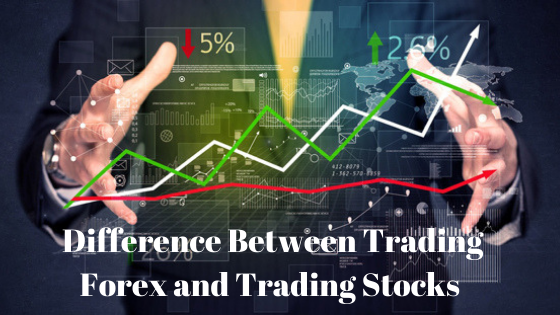The two financial
trading industries are complex and have their own different sets of risk
levels. There are stock traders who invest in forex and forex traders are
trying their luck in stock marketing. For a new trader, the choice can be quite
confusing. One of the most prominent reasons some traders favor the forex to
the stock market is forex leverage.
Below, we explain the
differences between stock trading and forex trading.
1.
Cost
of entry
You will need much
smaller money for entering the forex market rather than the stocks one.
Although forex market demands lower entry resources, you can make use of
leverage. This instrument helps traders to magnify their profit (or losses) and
make greater capital from the smaller investment.
2. Lower spreads on forex
Spreads, the
difference between the bid and ask price are on average smaller resembled to
stocks. Although some large-cap stocks have tight spreads, it is not the case
with many other stocks that you can trade.
In the forex markets,
the major currencies involved with tight spreads due to the volumes that these
currency pairs enjoy. Thus in the longer term, the spreads are a lot cheaper
compared to trading stocks.
3. Forex is a contemporary game
Another major difference
between forex and stock, as shown in a forex trading course, is that when you trade in forex, you are simultaneously
buying and selling the currency. This means you are trading currency pairs.
This is far different from stocks market trading. In shares, you can either buy
or sell at a time.
In forex trading,
currency pairs are the instruments of trading. You can speculate the currency
rise or fall against another currency after investing in it. However, in
stocks, you can buy the shares whenever you think that the share price of the
particular stock is going to increase.
4. Liquidity Differences
Some people speculate
on stocks, speculating in the forex markets is a lot cheaper. This is due to
the large available liquidity pool. Most of the retail traders are often speculators
holding positions for a few hours or a day at best.
With stocks, it is
also possible to speculate but the costs can run much high besides the fact
that you need vital capital to speculate in the stock markets. Most investors
favor to use the stock market as an investment. On the other hand, the forex
markets are a much more ideal for speculating.
Conclusion
As you can see, both
exchange markets have their pros and cons. Most investors are more familiar
with the stock market than with forex, and that familiarity may be comforting.
The comparative freedom from regulation on the forex and its high degree of
possible leveraging makes it easy to control large trades without special
qualifications and with a limited amount of money. You can learn and understand
by undergoing forex trading training programs that
sharpen your trading skills. That is the upside of the forex market, but
also the downside -participation in the forex increases both investment
possibilities and risk.


Great work ! Thanks for sharing
ReplyDeleteAngel Broking Limited
Book Built Issue
Bombay Stock Exchange
National Stock Exchange
I really don’t know how I feel right now i’m short of words for this amazing profit you’ve helped me earn in just a week, trading with the help of mr Gavin ray on binary options through his world masterclass strategy, doubted at the beginning, Today have earn $22,500 He’s such a genuine trader that also makes recovery of lost funds, you can contact him via email: gavinray78@gmail.com
ReplyDeleteVia whatsapp: (+1 217 339 4023)
I advice you shouldn't hesitate. He's great.